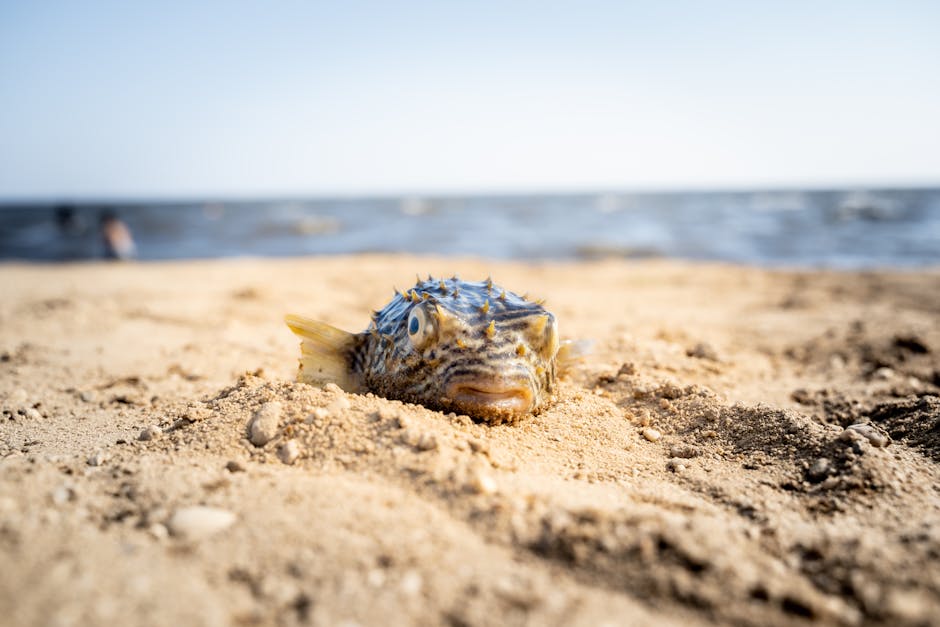Shellfish, comprising a vital component of numerous marine ecosystems, face a significant threat from the escalating ocean acidification crisis. This escalating issue, primarily driven by anthropogenic CO2 emissions, is profoundly altering the chemical composition of the ocean, directly impacting the physiological processes of shellfish, and potentially disrupting the delicate balance of marine food webs. This essay delves into the intricate relationship between ocean acidification and shellfish populations, examining the mechanisms of this harmful interaction and its far-reaching consequences.
A fundamental understanding of the processes involved in shellfish calcification is crucial to appreciating the impact of acidification. Shellfish, like oysters, mussels, and scallops, construct their shells and other hard structures through a complex process involving calcium carbonate precipitation. This process is delicately balanced, requiring specific environmental conditions. An increase in the concentration of dissolved CO2 in the ocean results in a corresponding rise in hydrogen ions. This increase in acidity lowers the availability of carbonate ions, a crucial component in the formation of calcium carbonate. Consequently, shellfish face a challenge in building and maintaining their shells, potentially impacting their growth rates, survival, and reproductive success.
Studies have demonstrated a discernible correlation between elevated CO2 levels and reduced shell formation in various shellfish species. Reduced calcification translates into thinner, weaker shells, potentially making shellfish more vulnerable to predation, physical damage, and even disease. Experiments conducted in controlled environments have highlighted the detrimental effects of increased CO2 on the metabolic processes of shellfish larvae, where the impact on the early life stages can be particularly severe, impacting recruitment into adult populations. These impacts are not limited to shell structure; the altered chemistry of the water can affect their physiological processes, including the functioning of their digestive systems and other organ systems.
The severity of the impact varies considerably across different shellfish species. Sensitivity to ocean acidification is influenced by factors like the species’ growth rate, life cycle, and physiological adaptation to environmental changes. Species with slower growth rates, or those with extended larval stages, are often more vulnerable to the gradual decline in carbonate availability. Moreover, genetic variations and phenotypic plasticity within a species can contribute to differential responses to acidification. Some species might exhibit greater resilience through natural genetic adaptation or phenotypic plasticity, allowing them to adjust to the changing environment.
Beyond direct effects on shellfish physiology, ocean acidification may cascade through the marine food web, impacting the wider ecosystem. Shellfish play critical roles in many marine food webs, serving as both prey and a significant source of food for various predators, including fish, birds, and mammals. A decline in shellfish populations could have implications for the overall health and diversity of the ecosystem. The intricate interactions and interdependencies within the marine food web mean that alterations at one level, like a decline in shellfish, can reverberate throughout the entire system, influencing the abundance and distribution of other species.
Furthermore, the economic consequences of declining shellfish populations are substantial. Shellfish aquaculture industries, a crucial component of coastal economies in many regions, are particularly vulnerable. The reduced growth rates, increased mortality, and decreased reproductive success of shellfish in aquaculture settings will directly impact production yields and potentially lead to economic losses for the industry. This impact, in turn, can affect local communities that depend on this industry for their livelihoods and economic well-being.
Mitigating the impacts of ocean acidification on shellfish populations requires a multi-faceted approach. Reducing anthropogenic CO2 emissions is paramount in addressing the root cause of the problem. Transitioning to cleaner energy sources, promoting sustainable land use practices, and adopting policies that encourage emissions reductions are essential. Conservation efforts focused on protecting and restoring shellfish habitats are equally critical. Effective management strategies, including responsible fishing practices, protection of spawning grounds, and the implementation of marine protected areas, can help safeguard remaining shellfish populations.
Beyond mitigation, research focusing on understanding the specific mechanisms of acidification impacts on shellfish is crucial. Studies examining the genetic and physiological responses of different species to acidification are essential for developing strategies to enhance shellfish resilience. Developing selective breeding programs for shellfish that exhibit higher tolerance to acidic conditions or developing effective aquaculture techniques to manage the impacts of acidification would be crucial.
Concluding Remarks
Ocean acidification poses a serious and multifaceted threat to shellfish populations, impacting their growth, survival, and reproduction. The consequences extend beyond individual species, affecting the delicate balance of the marine food web and impacting coastal economies. Understanding the complex interplay between ocean acidification and shellfish biology is crucial to developing effective mitigation and adaptation strategies. While the issue presents significant challenges, a concerted global effort to reduce CO2 emissions and protect shellfish habitats is essential to safeguard the future of these vital marine resources. Further research, proactive management, and collaboration between scientists, policymakers, and stakeholders are crucial for achieving a more sustainable future for shellfish and the marine environment as a whole.
